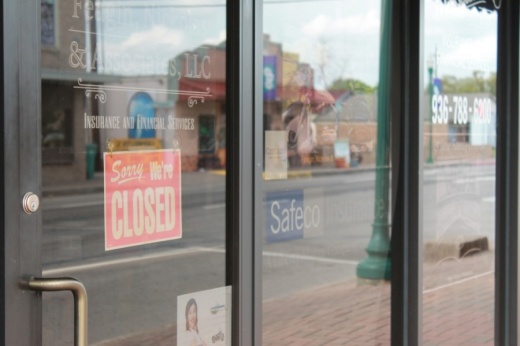The state's $2.61 billion sales tax revenue reported in May 2020 represents a decline of 13.2% over May 2019, and is the largest such drop experienced in Texas since January 2010. Sales tax represents 57% of the state's budget funding, Hegar said.
Hegar said "significant" sales tax collection declines were seen in all sectors in May—except telecommunications—with oil and gas mining seeing the largest decrease. Sales tax collections in the retail, dining, and amusement and recreation sectors decreased due to closures and government restrictions related to COVID-19, Hegar said, although some losses in those areas were offset by essential retailers and grocery stores, online retailers, and restaurants that began offering takeout and delivery ordering while dine-in service was prohibited.
Hegar said business for the state's hardest-hit sectors gradually ticked upward beginning last month, although state sales tax collections will likely take months to fully recover.
“With the easing of state and local government social distancing orders beginning in May, business activity in the sectors most affected by measures to curb the pandemic should begin to slowly recover, but operations resuming at reduced capacity will result in continued reductions in employment, income and activity subject to sales tax for months to come," Hegar said in the statement.
Other state tax collections also saw dips in May, according to Hegar. May's $265 million in motor vehicle sales and rental taxes collected increased since April but is still 38% below May 2019's results. The $221 million in fuel taxes collected last month is down 30% from May 2019, the steepest drop in that category in more than 30 years. May's $31 million natural gas production and $90 million oil production tax collections dipped 76% and 75%, respectively, from May 2019. Two categories saw their largest-ever reported year-over-year declines in May, with $8 million in hotel occupancy tax collections down 86% over May 2019 and $28 million in alcoholic beverage tax collections down 76% over last May.
May franchise tax collections are well below May 2019 figures as well, but Hegar noted the two months should not be compared due to his extension of franchise tax payments this year from May 15 to July 15.
In his office's May issue of its Fiscal Notes publication, Hegar said Texas remains in good financial standing for 2020—although next year's Legislature may face difficulty with the state budget.
"At this point, there seems to be little chance of a quick end to this turmoil. Fortunately, our state’s fiscal position is strong enough to support vital programs for the remainder of this year, and our state’s 'rainy day fund' remains healthy," Hegar wrote. "But the legislative session that begins in January 2021 will face significant and perhaps unprecedented challenges."





